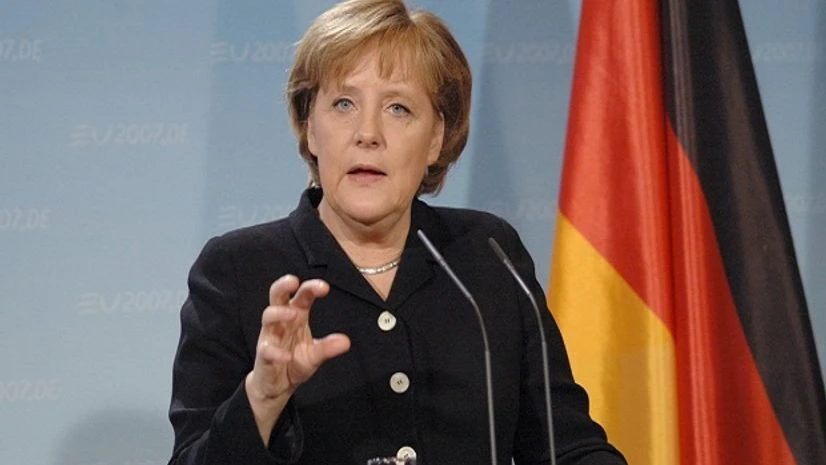German Chancellor Angela Merkel came under renewed pressure over her liberal refugee policy on Monday, after an upstart anti-migrant populist party handed her party a humiliating defeat in her home state.
The xenophobic Alternative for Germany (AfD) clinched around 22 per cent in its first bid for seats in the regional parliament of Mecklenburg-Western Vorpommern, results showed after most ballots had been counted from yesterday polls.
Merkel's conservative Christian Democratic Union (CDU) garnered just 19 per cent in its worst ever score in the northeastern state, while the Social Democrats maintained top place with around 30 per cent.
AfD's lead candidate Leif-Erik Holm called it a "proud result for a young party" as the populists secured seats on the opposition benches of the ninth out of 16 regional parliaments.
"The icing on the cake is that we have left Merkel's CDU behind us... Maybe that is the beginning of the end of Merkel's time as chancellor," he said.
Also Read
Although the former Communist state is Germany's poorest and least populous, it carries a symbolic meaning as it is home to Merkel's constituency Stralsund.
Together with Berlin's elections in two weeks, yesterday's polls are a key test ahead of general elections next year, when Merkel's decision exactly one year ago to let in tens of thousands of Syrian and other migrants is expected to be a key point of contention.
Although she won praise at first, the optimism has given way to fears over how Europe's biggest economy will manage to integrate the one million people who arrived last year alone.
Merkel's decision has left her increasingly isolated in Europe, and exposed her to heavy criticism at home, including from her own conservative allies.
The CDU's general secretary Peter Tauber said yesterday's results were "bitter", acknowledging that voters "wanted to send a signal of protest, as we had noticed in discussions about refugees".
In the sprawling farming and coastal state of Mecklenburg-Western Pomerania, where economic regeneration and jobs used to be residents' top concerns, the issue of refugees and integration has become the deciding factor for one in two voters.
"There was only one issue, that is, and was, refugee policy," said the CDU's main candidate Lorenz Caffier.
A pensioner and former teacher who declined to be named said he picked AfD because of the "question over asylum-seekers".
"One million refugees have come here. There is money for them, but no money to bring pensions in the east to the same levels as those of the west," he said, referring to the lower retirement payments that residents of former Communist states receive compared to those in the west.
Compared to other parts of Germany, the northeastern state hosts just a small proportion of migrants under a quota system based on states' income and population — having taken in 25,000 asylum seekers last year.

)
